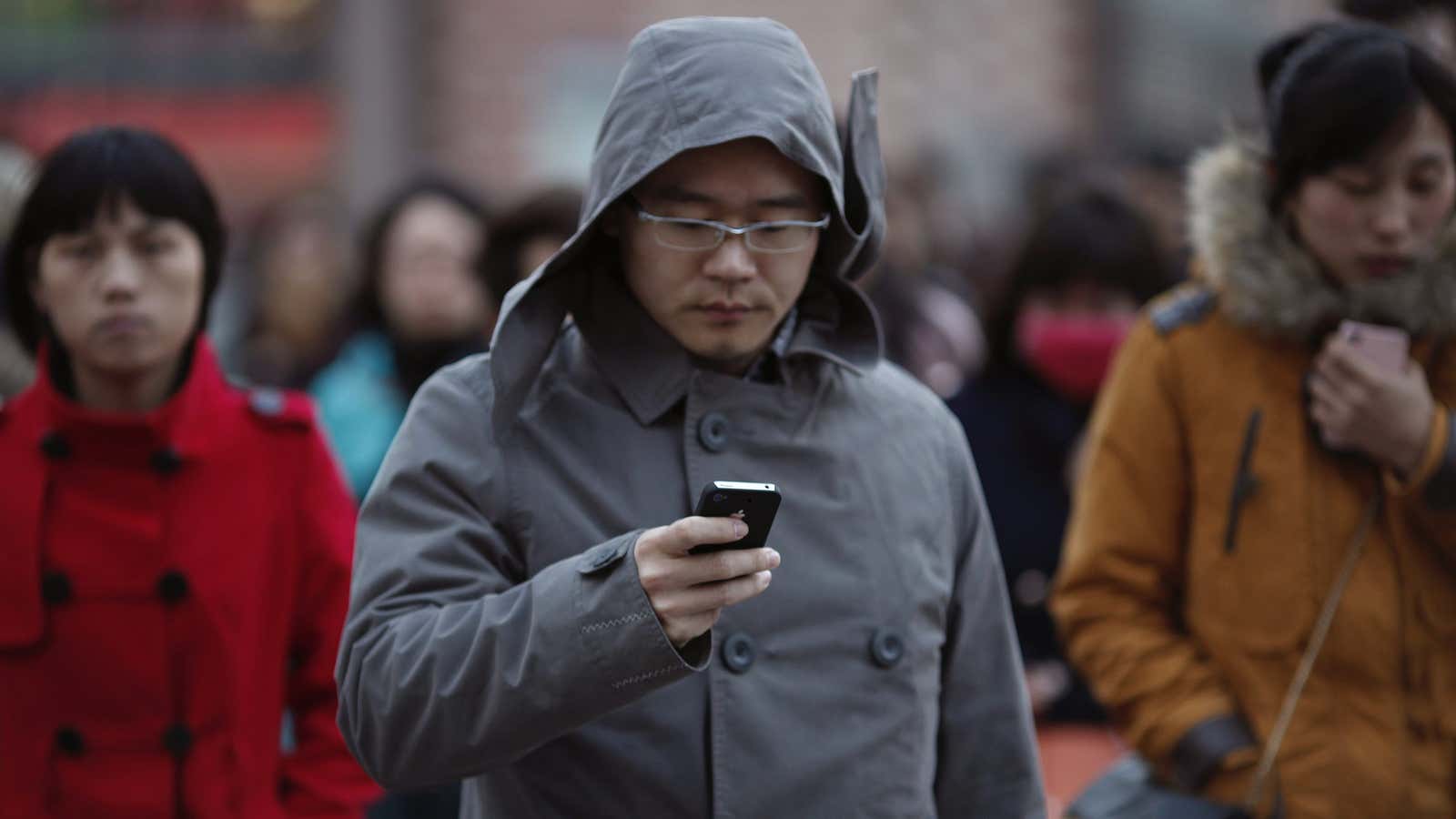China’s apps have flourished thanks to their ability deliver videos, product offers, or stories perfectly tailored to their users. But the country’s first rules governing algorithms appear aimed at reining in tech giants’ ability to do that.
Effective March 1, the new rules (link in Chinese) are part of the country’s ongoing efforts to curtail the power of its tech champions, ranging from e-commerce giant Alibaba to its younger rival ByteDance, the parent of TikTok. In essence, they require companies that use algorithm-based recommendations in their services to offer more transparency on how they work, and how that affects users. The rules ask platforms to “proactively spread positive energy,” and ensure their algorithms are “for good. They also bar them from designing models that entice users to engage in “excessive spending” or develop an addiction to the platforms—demands that seem at odds with many social or e-commerce business models
After issuing a draft of the rules in August, the Cyberspace Administration of China yesterday (Jan. 4) released the final version of the rules alongside three other government departments, including China’s antitrust watchdog, the Ministry of Public Security, and the Ministry of Industry and Information Technology.
The rules represent one of the most advanced frameworks regulating algorithms worldwide.
Globally governments have sought to come up with legislative proposals to try to contain the power of tech giants whose algorithms have been accused of recommending posts that exacerbate hate speech and worsen political polarization. For the US, the challenge to regulate internet platforms is trickier than in China, as the First Amendment limits the government’s ability to order private companies to remove certain types of content. In one-party China, the government’s authoritarian rule has allowed it to exert an ever-tighter grip on tech companies, forcing them to rectify monopolistic practices and invite more state participation in the firms. In 2020, as the Trump Administration tried to orchestrate a US acquisition of TikTok to address national security concerns, China abruptly updated its export control rules, adding “personalized information push service technology based on data analysis” as an area restricted from export.
The rules require firms to give users the choice to switch off algorithmic recommendations, and to allow users to delete or keep certain tags the platforms attach to them for making recommendations. For apps like Douyin, the Chinese version of TikTok, this clause could potentially affect its existing business model that revolves around the powerful algorithm engine of its parent ByteDance, although the actual effect is unclear given the vague wording of the rules. Companies also need to reveal the basic principles, intentions, and main operating mechanisms behind the algorithm recommendation service, according to the rules.
Despite the seemingly sweeping reach of the algorithm rules on paper, some argue that the impact may not be so large in reality, since they “only require opt-out, rather than opt-in for recommendation services. The vast majority of users won’t be aware of such an opt-out function, and few would bother to opt-out as the option is often deeply embedded in the app’s privacy setting,” said Angela Zhang, an Associate Professor of Law at the University of Hong Kong and an expert on China’s tech regulations.
